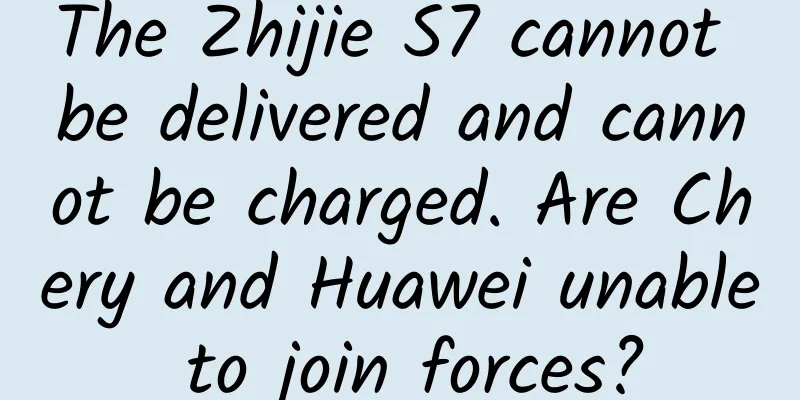Virtual operators have only 20 million users in two years, and their development prospects in 2016 are unclear

|
Recently, at the 2016 Mobile Resale Business Global Development Summit, Xie Yuqi, Director of the Policy and Standards Division of the Development Department of the Ministry of Industry and Information Technology, revealed that after two years of development, the number of virtual operators in my country has reached 20.5 million, accounting for 1.5% of the total number of mobile users in the country. At the end of 2013, the Ministry of Industry and Information Technology issued the first batch of mobile communication resale business pilot licenses to 11 private enterprises. At the end of 2014, the number of users was only 2 million. By the end of December 2015, a total of 42 enterprises had obtained pilot approval documents, of which 39 officially issued numbers. In the past two years, the State Council has proposed opening up the telecommunications industry to private enterprises, and the pilot business of virtual operators is one of the symbols. Apart from 20 million users, what else can we say about virtual operators? How will they develop in 2016? Major events of virtual operators in 2015 In 2015, virtual operators gradually emerged from the mud of the "wave of bankruptcies", from collective losses to some companies turning losses into profits. 1. Virtual operators partially “turn losses around” In March 2015, after Leyu Communication closed the Beijing flagship store of its mobile resale brand "Miaomore", Lianlian Technology was exposed to be "shrinking" its business. In October 2015, Zou Xueyong revealed to Sohu Technology that only half of the 44 virtual operators that obtained licenses were operating, accounting for 0.9% of the number of mobile phone users nationwide. Among them, Snail Mobile, JD.com, Alibaba, Yuante, D.Phone, Gome, Suning, Share Communication, and Bus Online have over one million users. The URPE value is only about 15 yuan. What is even more sad is that all these virtual operators are in a loss-making state. At the meeting organized by the National Development and Reform Commission, ten virtual resale companies participated in the meeting. The virtual operators ranked first in user development invested between 100 million and 200 million yuan, and their losses were basically around 50 million yuan. In January 2016, the virtual operator's "capital story" reversed. Bus Online CEO Wang Xianshu revealed that the gross profit in 2015 exceeded 10 million yuan. In the past three years, Bus Online has invested nearly 150 million yuan in the field of mobile resale; Share Communications Chairman Jiang Zhixiang told reporters that it is expected to achieve profitability in 2016; D Phone Chairman Liu Donghai told Sohu Technology that D Phone's virtual operator users have exceeded 3 million, and D Phone will invest 300 million yuan in virtual operator business in 2016. 2. Xiaomi enters the virtual operator market On September 22, Xiaomi unexpectedly joined the ranks of virtual operators and launched the virtual operator brand Xiaomi Mobile. Lei Jun, chairman of Xiaomi, said: The goal is to become the user's second secondary card, which can be used to register websites or mobile applications, express delivery or e-commerce shopping, and can reduce user privacy leakage and phone harassment. Therefore, Xiaomi first launched the "Renwoxing" phone card in terms of tariff design: 0.1 yuan/minute for calls, 0.1 yuan/message, and 0.1 yuan/MB for Internet access. Users need to activate it every 180 days. However, judging from the number segment of the number card and the support for China Unicom's 2G/3G/4G standards, this number segment is resold by China Unicom. Although it claims to be "always free of monthly fees", it actually charges a "caller ID fee" of 5 yuan per month, which is actually equivalent to the "monthly fee" for users. Lei Jun explained and complained about this as "mandatory regulations of the operator." Although Lei Jun has not yet announced the number of users of the virtual resale business, Xiaomi's entry has added an "ally" to the virtual operators' challenge to the basic operators. 3. Private broadband vs operator broadband In June 2015, three private enterprises, Suning.com, Dr. Peng (Great Wall Broadband) and Wangsu Technology, were the first to obtain broadband operating licenses. From March 1, 2016, private enterprises can apply for broadband operator licenses, and the first batch of pilot cities include Harbin, Shanghai, Nanjing and other 17 cities. Wu Shaoyan, executive vice president of virtual operator Dr. Peng, said in an exclusive interview with Sohu that as of December 2015, Dr. Peng's broadband (Great Wall Broadband, Broadband Pass) users exceeded 10 million (household users) and access terminals exceeded 50 million. In addition, Jiang Zhiyu, the virtual operator of Hongdou Telecom, revealed that it has obtained the approval for the broadband access pilot project. Hongdou Telecom has moved forward from the original two areas of communications resale and broadband resale. It is another virtual operator entering the broadband field. Public data shows that China Telecom has 110 million broadband users and China Unicom has 72.33 million broadband users. Although the number of users of virtual operator Dr. Peng is less than 10%, it has still started the exploration of private broadband. Uncertain outlook for 2016 Xu Lidong, director of the Telecommunication Industry Research Department of the China Academy of Information and Communications Technology, predicts that the number of virtual operators will reach more than 40 million in 2016, and the market share may reach more than 3%. However, according to industry insiders, due to the lack of differentiation and innovative services, coupled with institutional constraints, the development prospects of virtual operators in 2016 are still unclear. 1. There are many regulatory loopholes and uneven distribution of number resources During the pilot process, some problems have emerged in the mobile communications resale business, such as inverted wholesale and retail prices, uneven distribution of number resources, the inability of some companies' back-end support systems to keep up, resulting in a large number of user complaints, weak innovation capabilities resulting in a lack of business characteristics and inability to form differentiated advantages, and insufficient implementation of the real-name system. Industry insiders believe that during the pilot process, virtual resale businesses also face problems in pilot application, IT system connection, provincial filing, wholesale price, number allocation, number identification, function opening, and real-name system. In 2016, resale companies should make greater breakthroughs in strengthening business innovation, real-name system management, and improving service quality and number resource utilization. 2. Regional network, poor user experience At present, 30 provinces in China have developed mobile resale business. However, in terms of regional distribution, Guangdong, Zhejiang, Jiangsu, Beijing and Shandong are the top five provinces, accounting for 50%. Most of them have not yet started the business. Sohu Technology found that most virtual operators cannot provide international roaming services. While basic operators basically charge national roaming fees, some virtual operators still charge roaming fees. In addition, in terms of user distribution, the Ministry of Industry and Information Technology announced that the number of virtual operator users was 20.5 million, while Zhou Renjie, general manager of China Unicom's Regulatory Affairs Department, said that China Unicom's virtual resale users exceeded 18 million. This shows that the total number of virtual resale users of China Mobile and China Telecom is less than 3 million. 3. The previous dividends have been realized, but there is no "story" for the introduction of capital According to the Ministry of Industry and Information Technology, according to the plan, my country's mobile communications resale "pilot" has ended at the end of 2015. The Ministry of Industry and Information Technology revealed that it is speeding up the research and formulation of formal commercial policies and strives to introduce them as soon as possible. Some companies that are developing their businesses with licenses can sit back and relax once they get the licenses. Many virtual operators have already realized their dividends in the early stage. For example, Bus Online was acquired by Xin Jialian and listed indirectly, Leyu Communication was acquired by Hongtu Sanbao, and D.Phone was successfully listed in Hong Kong. At present, there are more than 10 virtual operators claiming to have more than 1 million users. However, some of them have less than 10 online users per month, and most virtual operators still have no users. Xu Lidong said that currently about 20% of the leading companies in my country account for about 88% of the users. In the future, as more resale companies emerge, the market will continue to integrate and differentiate, and the "28" phenomenon will continue to strengthen. The cruelty of market competition has led to performance differentiation and even survival of the fittest among resale companies, which is a normal phenomenon. 4. BAT is still watching and has no substantial investment Insiders revealed that in response to the most prominent problems of "wholesale and retail inversion" and "uneven distribution of number resources", the three major operators lowered their wholesale prices in 2015. Among them, China Unicom even lowered its prices twice within a year. Not long ago, the Ministry of Industry and Information Technology also officially issued guiding opinions on the adjustment of wholesale prices for mobile communications resale business. However, it may be difficult to change the embarrassing situation of virtual operators with "much ado about nothing". At present, e-commerce platforms such as JD.com, Alibaba, and Suning.com have obtained virtual operator licenses, but compared with Snail Mobile and D.Phone, their business and performance are mediocre or even ineffective. In August 2015, Baidu planned to invest in Share Communication. Only information about Share Communication was seen on Baidu Tieba. It was said that it would promote "packages" in terms of voice, traffic, and Tieba levels, and then there was no further news. Tencent made it clear that it would not enter the virtual operator market. Industry analysts believe that judging from BAT's "disdain" for virtual operator licenses, virtual operator licenses are only symbolic. Obtaining a virtual operator license is a good hype point in the capital market, but without substantial business support, the Internet giants BAT are bleeding, and they still need open policy encouragement and market cultivation. As a winner of Toutiao's Qingyun Plan and Baijiahao's Bai+ Plan, the 2019 Baidu Digital Author of the Year, the Baijiahao's Most Popular Author in the Technology Field, the 2019 Sogou Technology and Culture Author, and the 2021 Baijiahao Quarterly Influential Creator, he has won many awards, including the 2013 Sohu Best Industry Media Person, the 2015 China New Media Entrepreneurship Competition Beijing Third Place, the 2015 Guangmang Experience Award, the 2015 China New Media Entrepreneurship Competition Finals Third Place, and the 2018 Baidu Dynamic Annual Powerful Celebrity. |
<<: The smart wind blowing in Davos cannot cure the current haze in the manufacturing industry
>>: Competition is getting fierce in 2016. What will the color TV industry compete for?
Recommend
Can eating rice like this help you lose weight? Are you tempted?
I heard that cooling down cooked rice, steamed bu...
SAIC-GM has no way to save itself by cutting production and laying off employees. It is better to follow Volkswagen's example and rely on domestic brands as soon as possible.
Toyota, Honda, and Nissan all fell in price. Japa...
How do effective exhibition advertisers promote their products?
Today I want to talk to you about how exhibition ...
Ketchup was once popular as a medicine for 20 years. Q: Does it come with French fries?
All crops with the word "Hu" or "F...
How to analyze Baidu search term report? How do I analyze the search terms report?
Bidding is a game of spending money to buy traffi...
What should we do to retain users?
How can we avoid loss of users that we have worke...
"I was infected with Omicron in South Africa": There are 3 symptoms!
The impact of the Omicron strain on South Africa ...
Why are there so many varieties of chrysanthemums? Because they have found their "Bo Le"|Bo Lan Daily
There are many varieties of chrysanthemums , beca...
Daily data analysis of information flow, what should be analyzed in routine data analysis of information flow?
The cost of big search has been quite good recent...
How to develop a successful online event planning plan?
This article mainly talks about how to develop a ...
The 10 worst unicorns of 2015: Evernote and Dropbox are on the list
American technology blog VentureBeat wrote an art...
Sony MDR-Z7M2: Fully wrapped listening experience, making music more vast
As a benchmark brand in the global audio industry...
The peak season for dengue fever is here. You need to prepare in advance for the May Day holiday.
As temperatures rise across the country, mosquito...
How powerful is iPhone 7? Its performance surpasses MacBook Air
Not long ago, several benchmark databases showed ...









